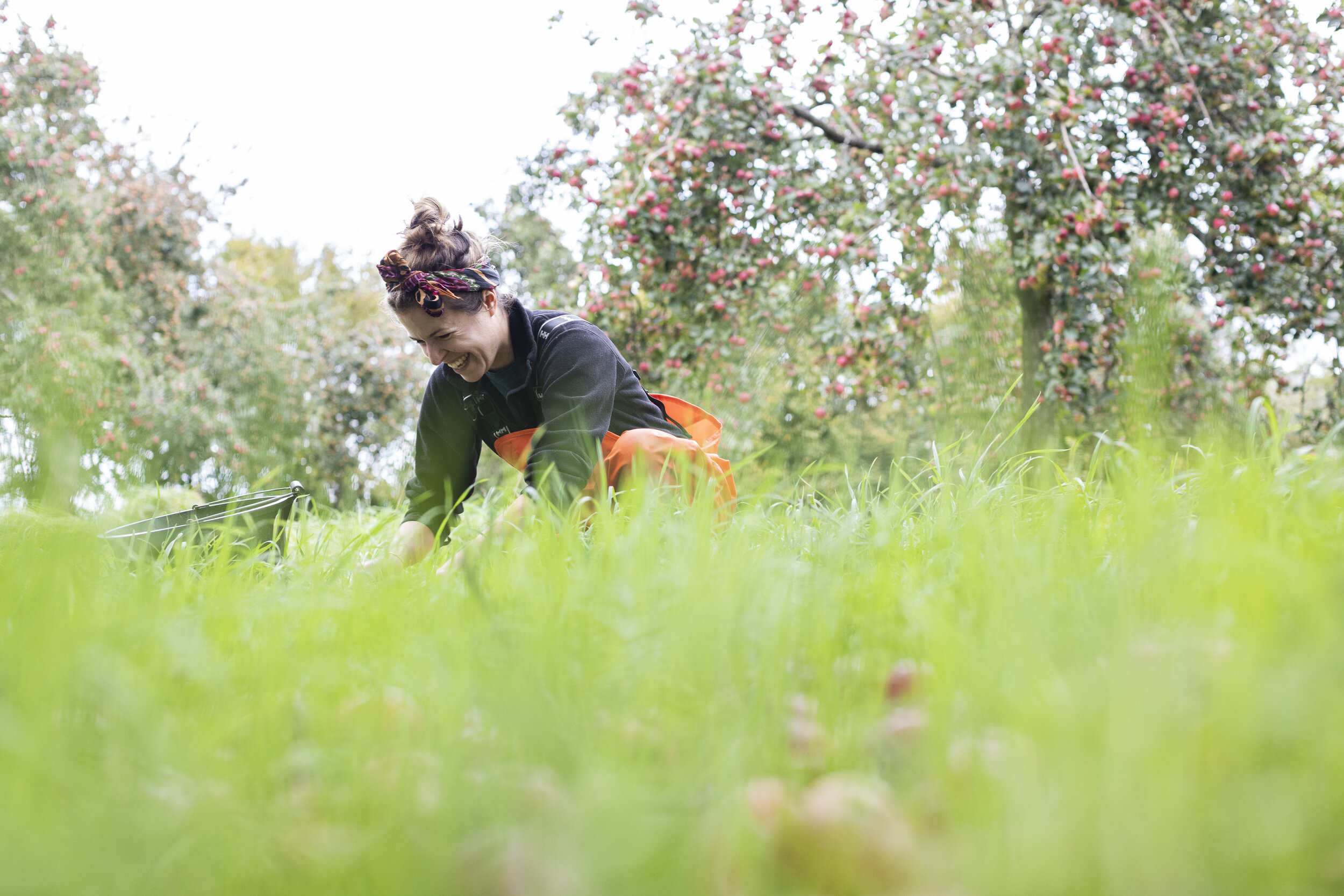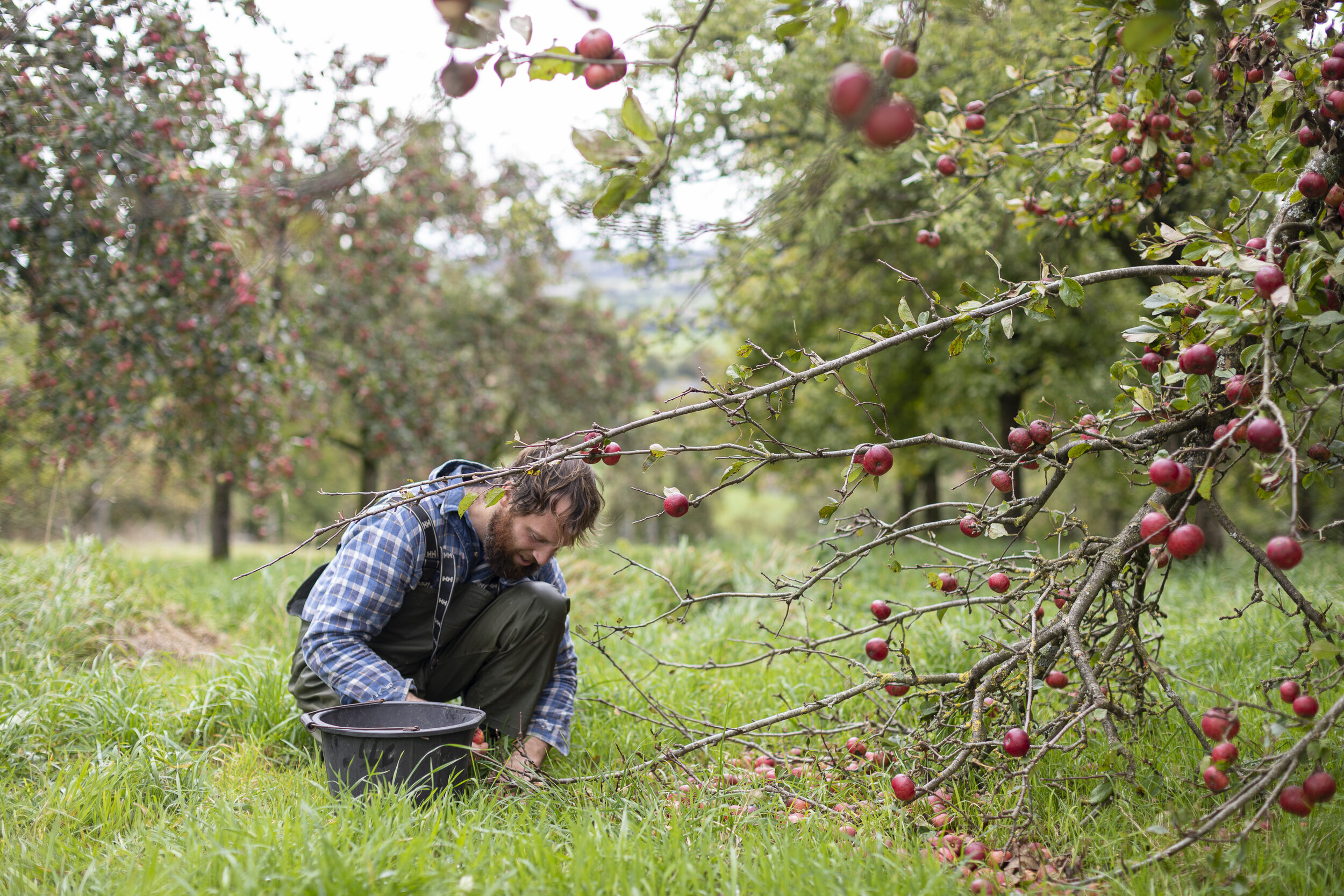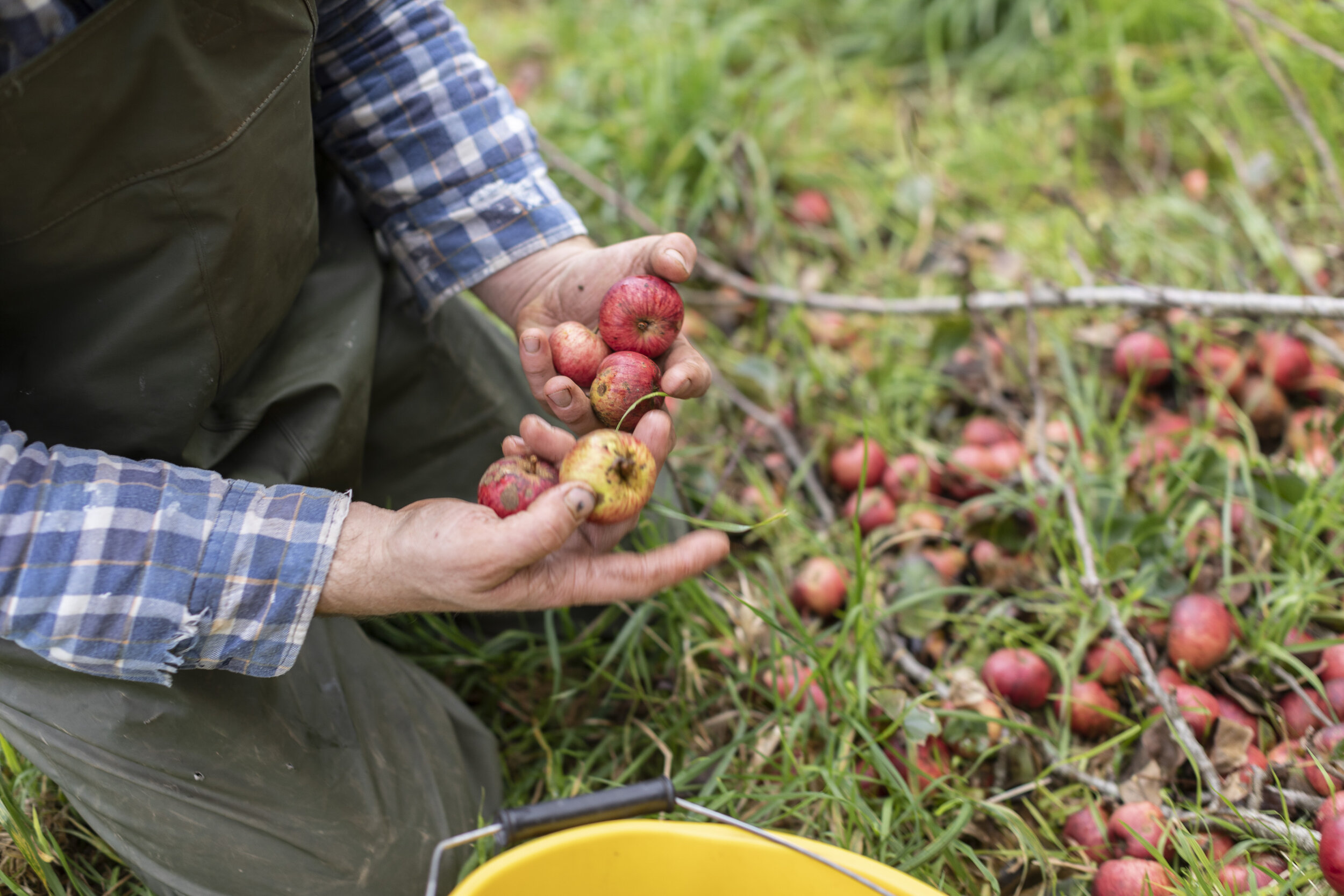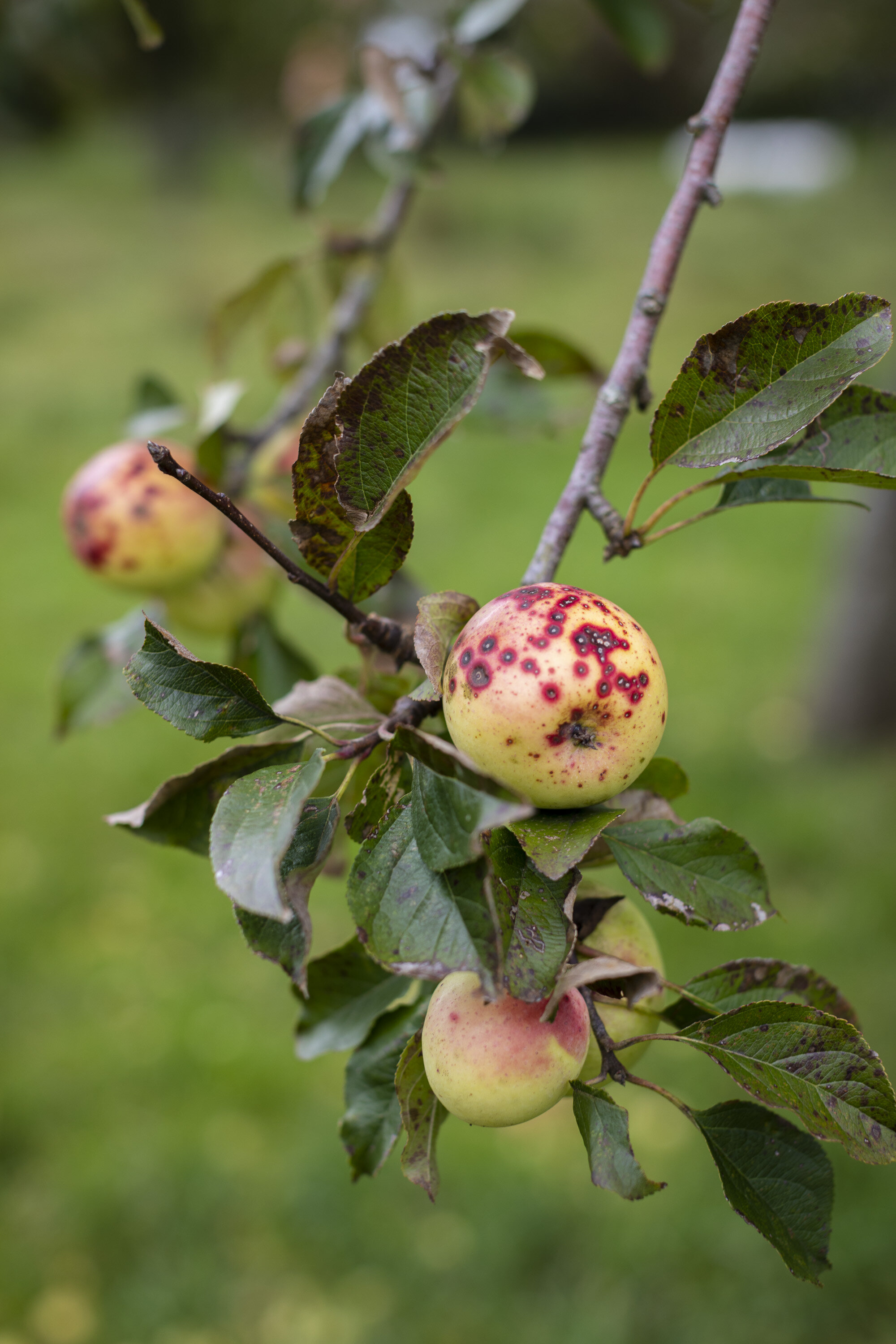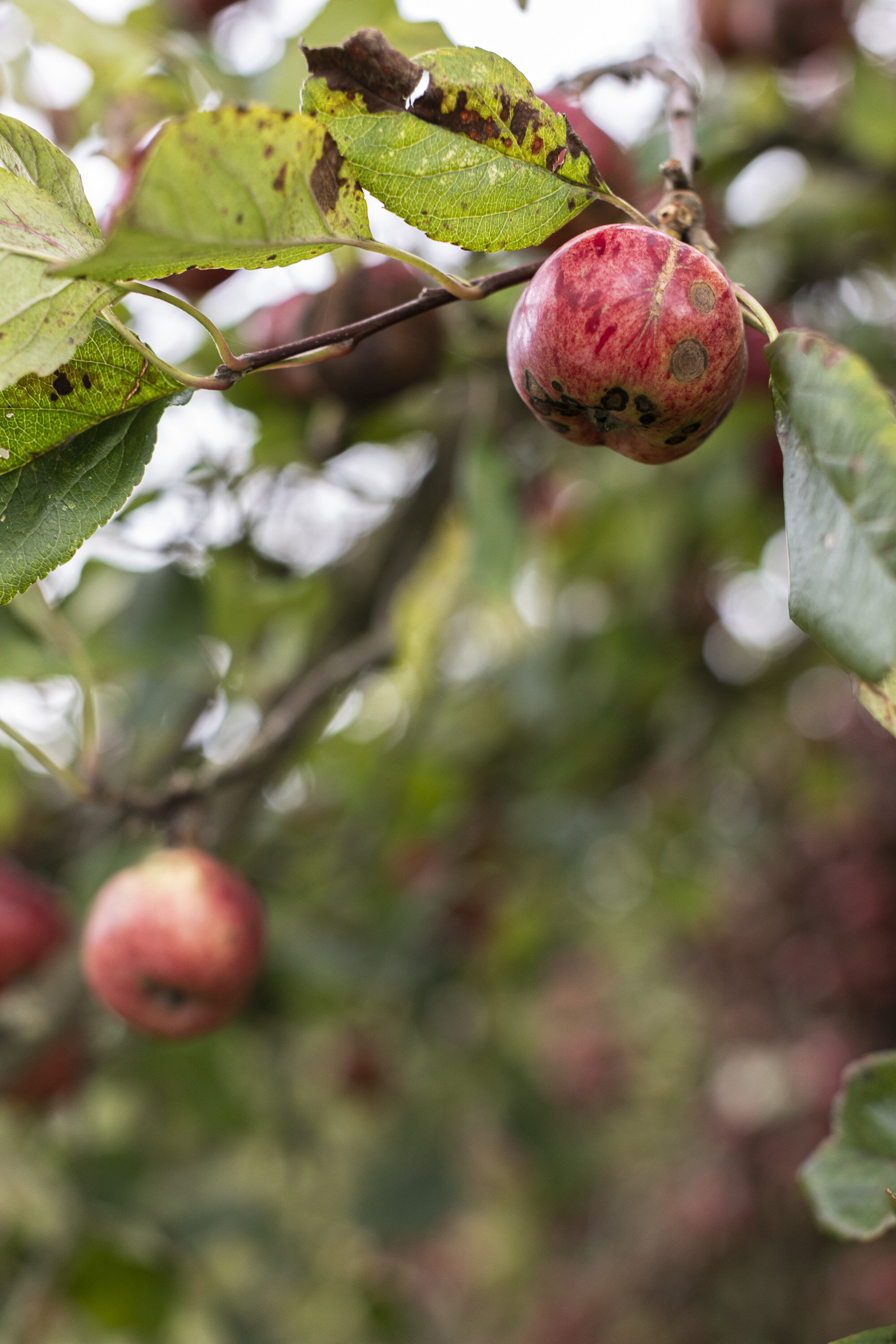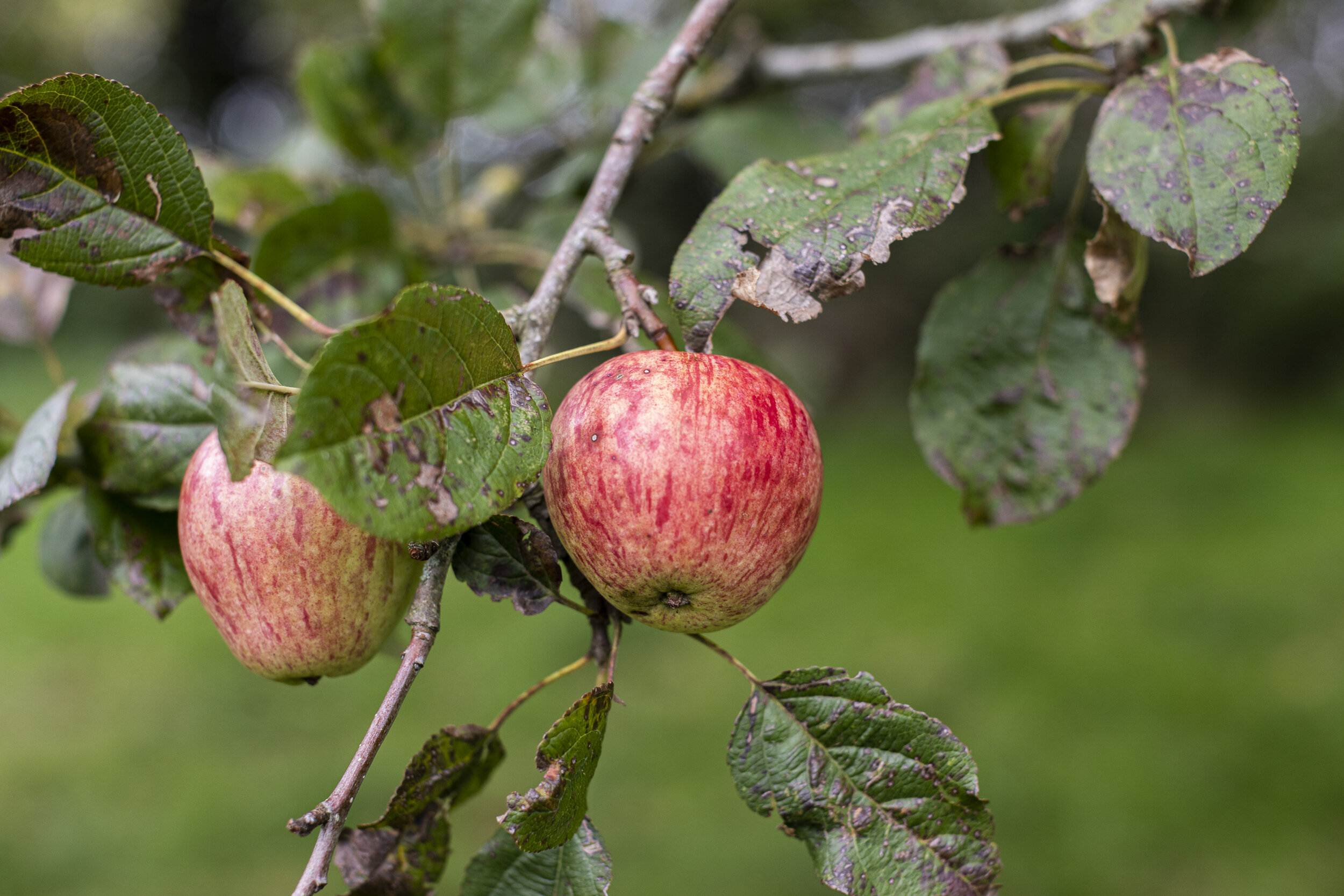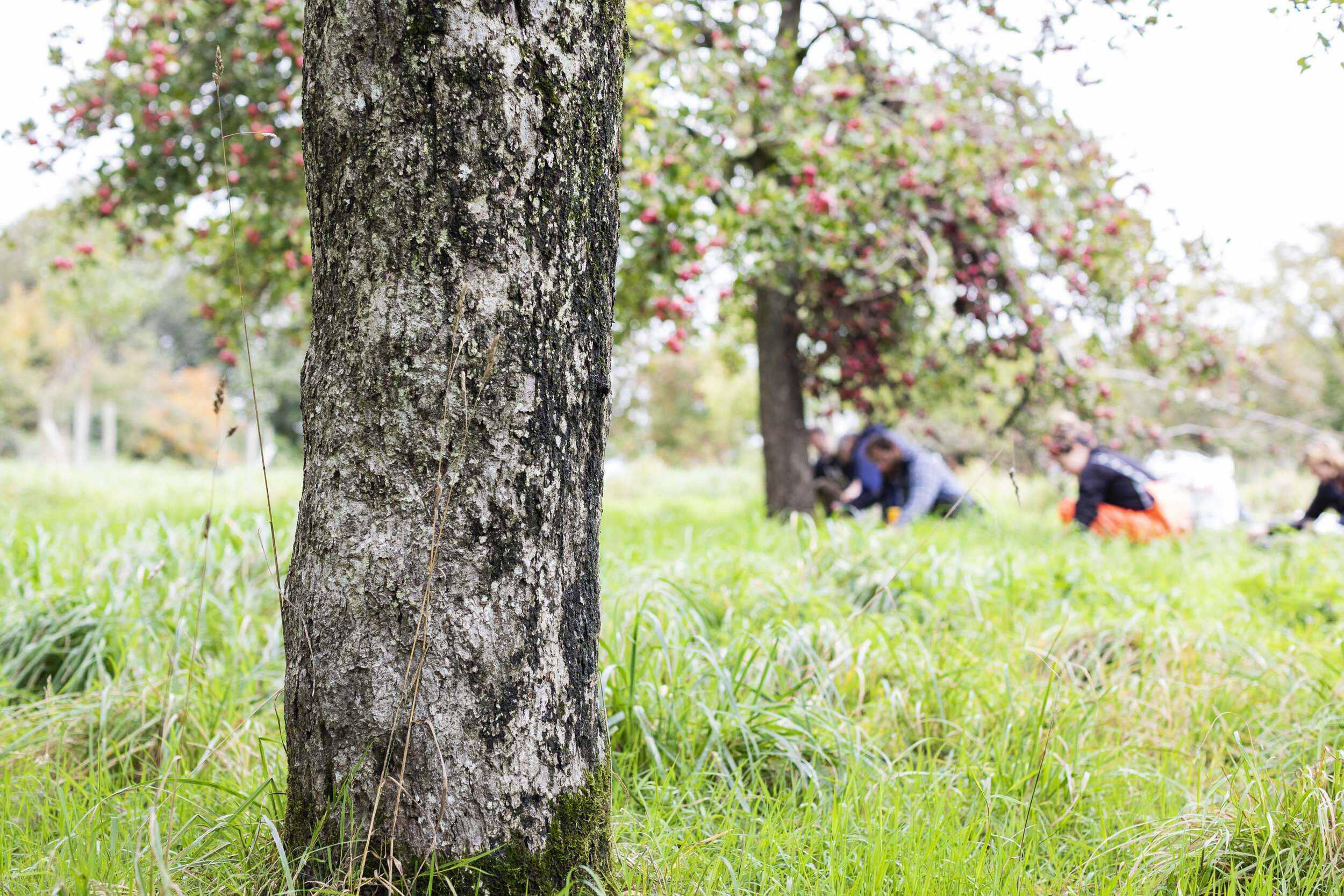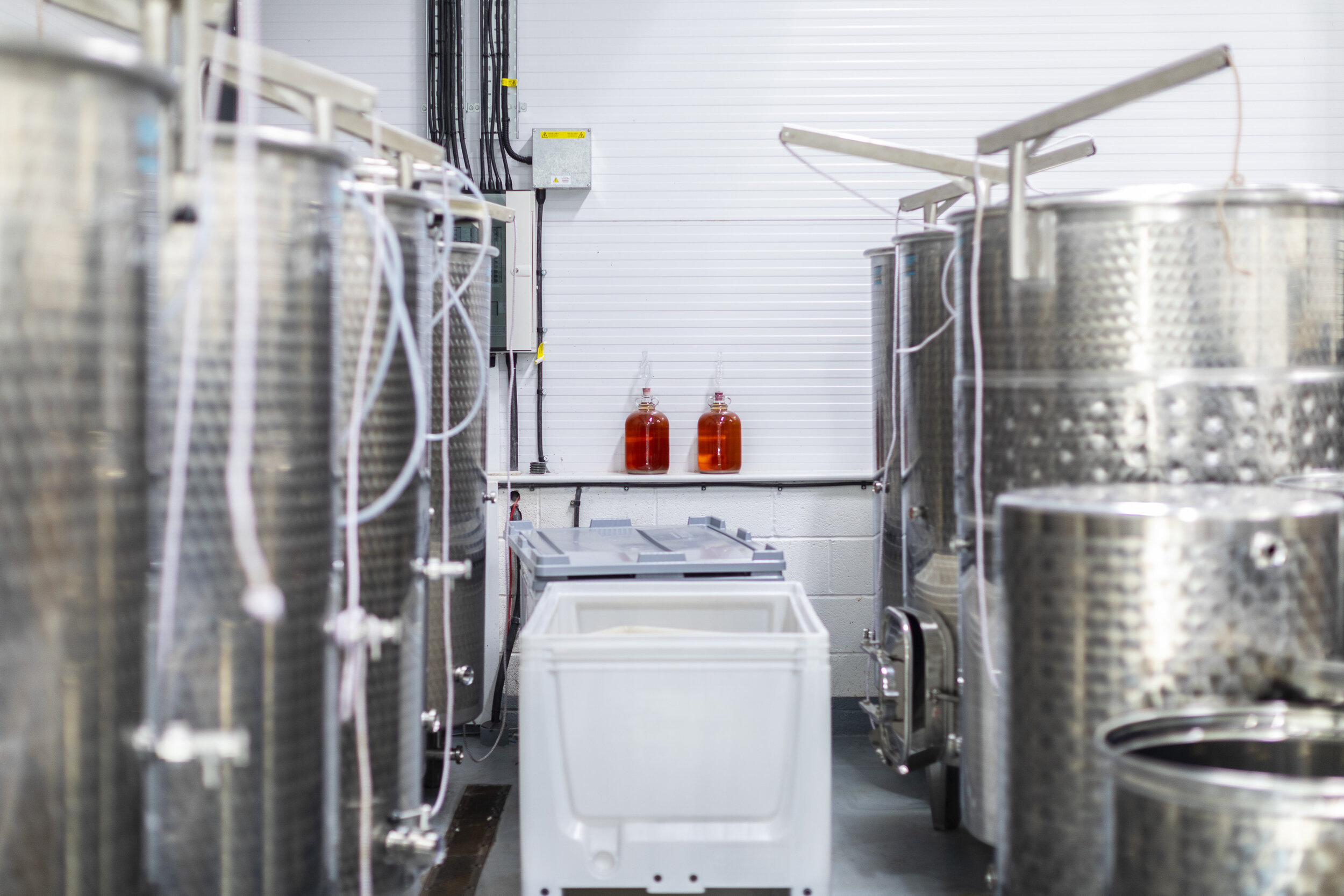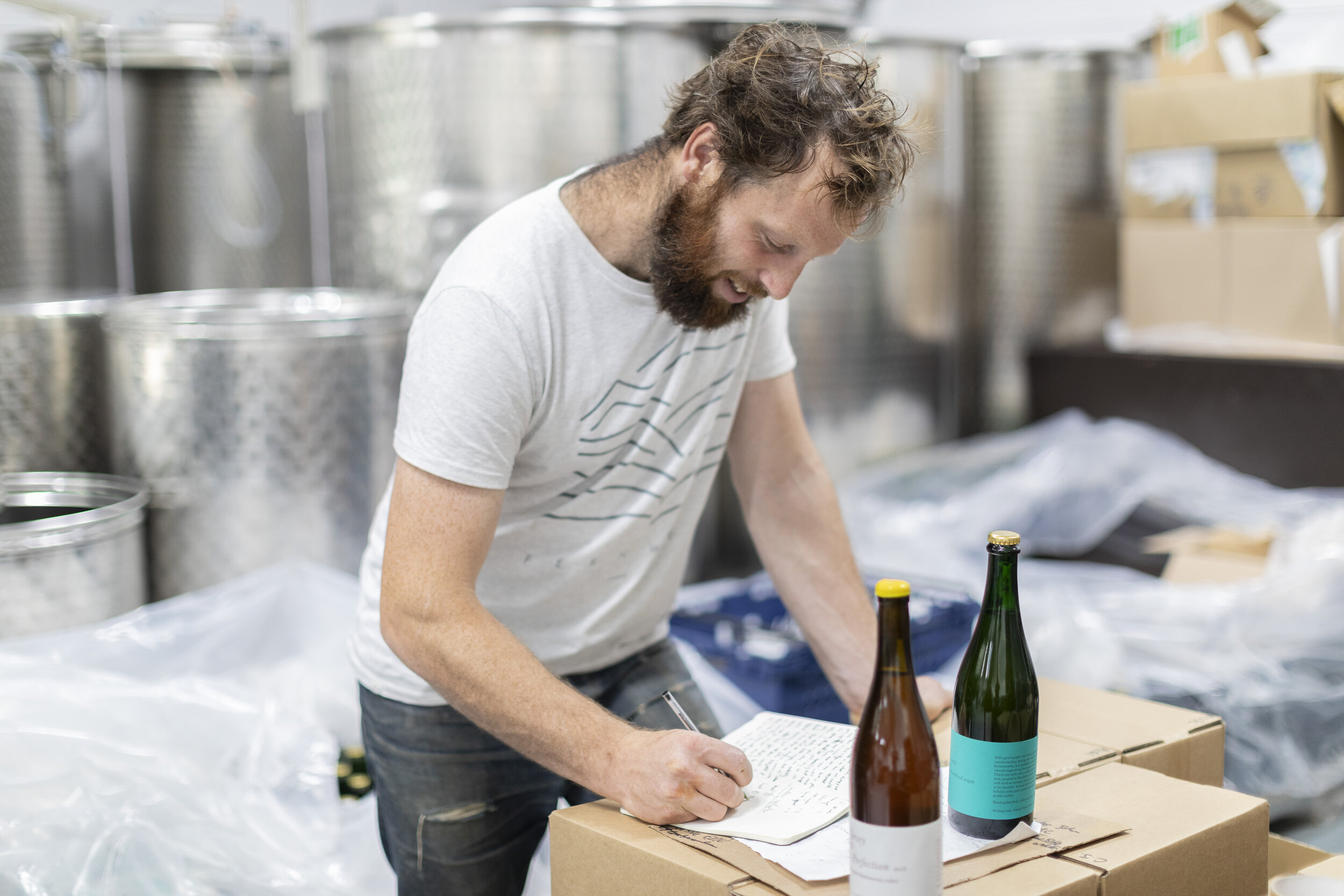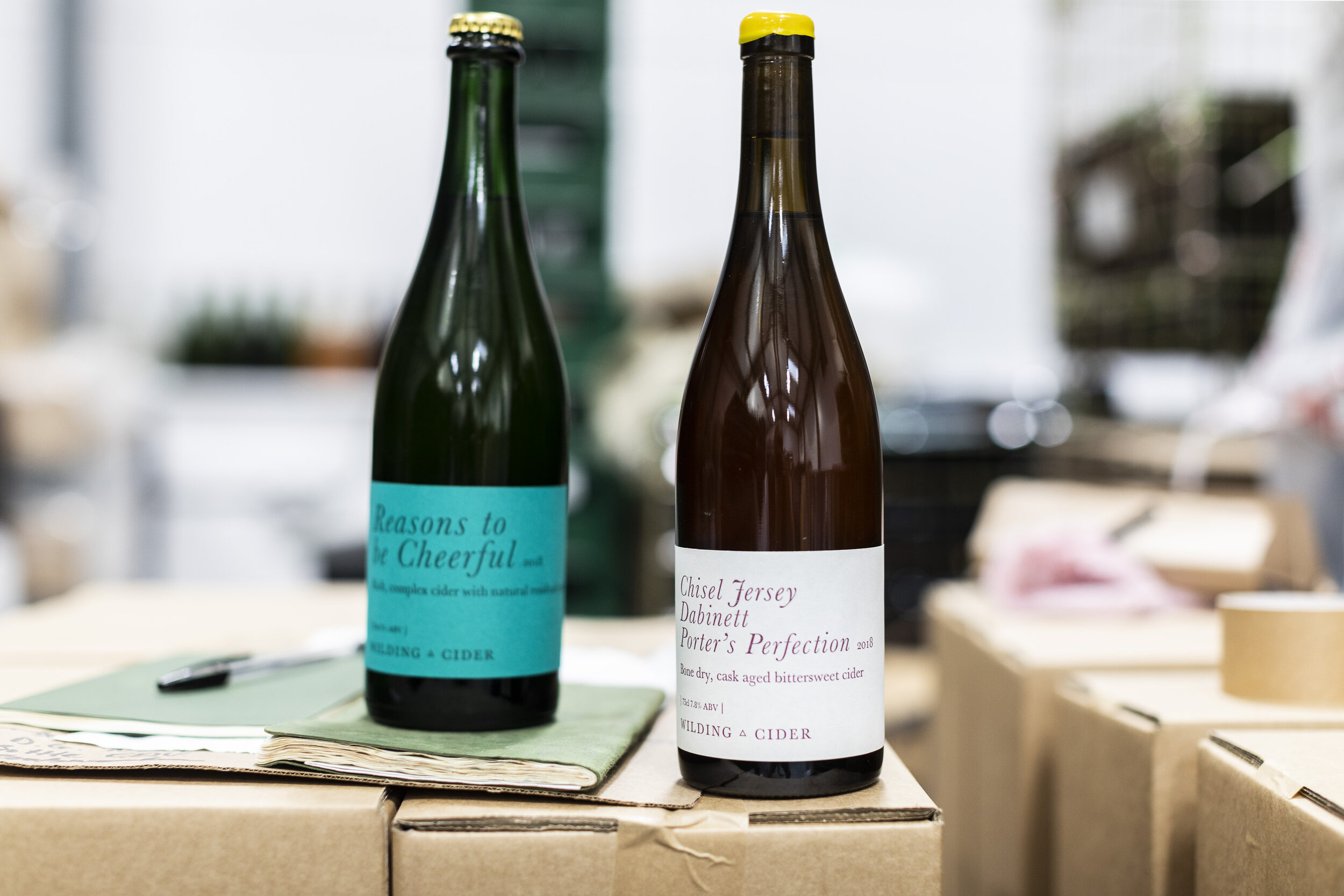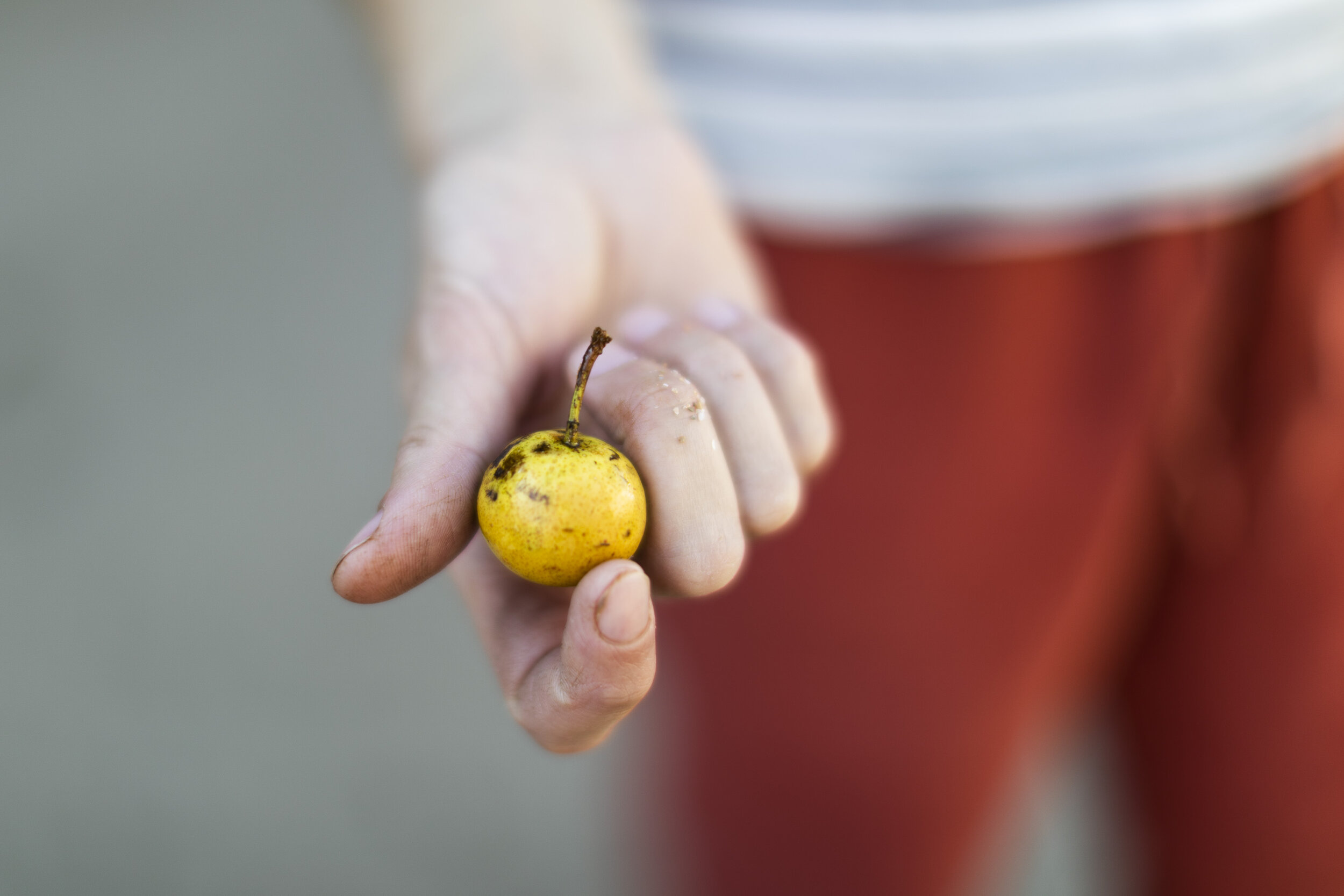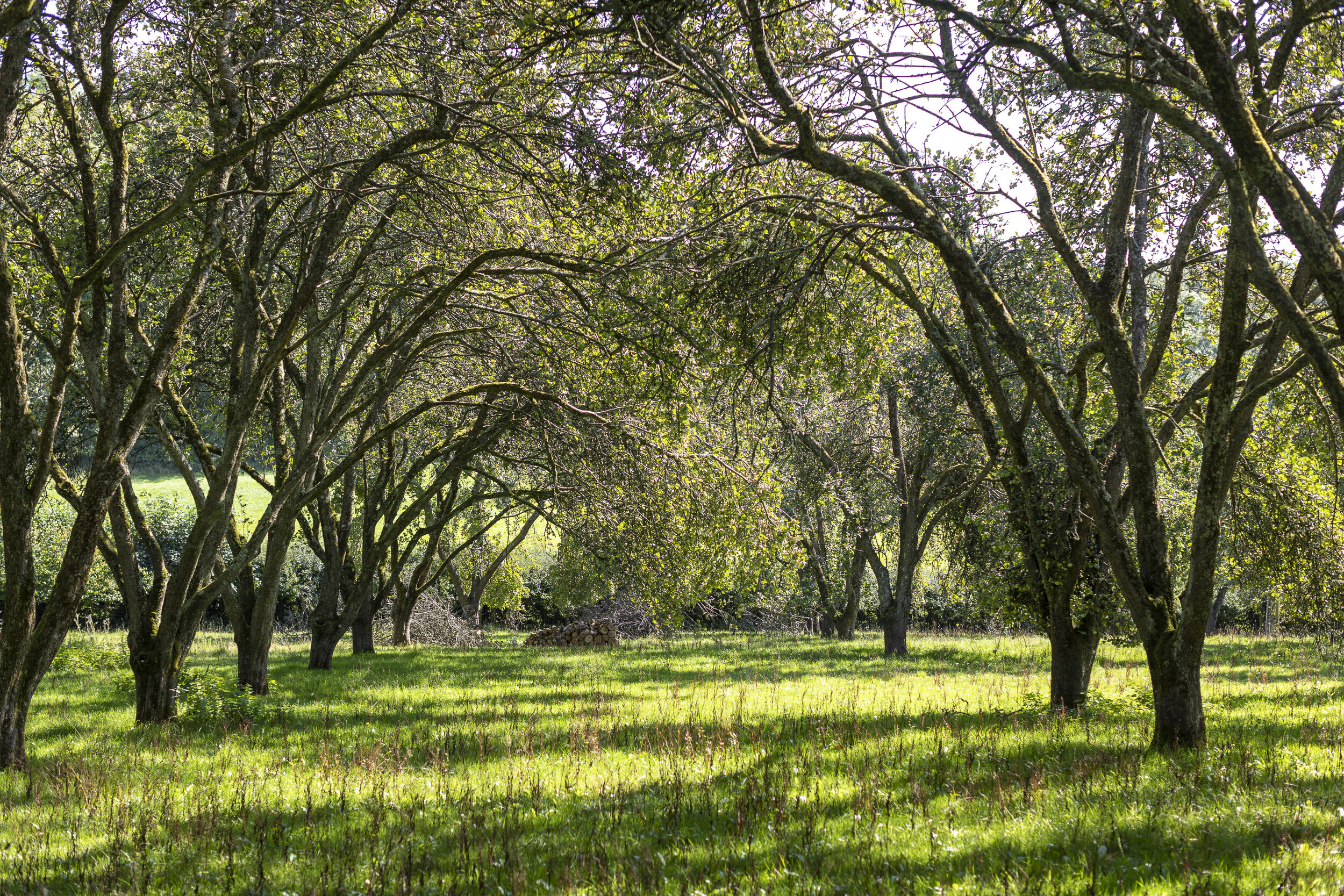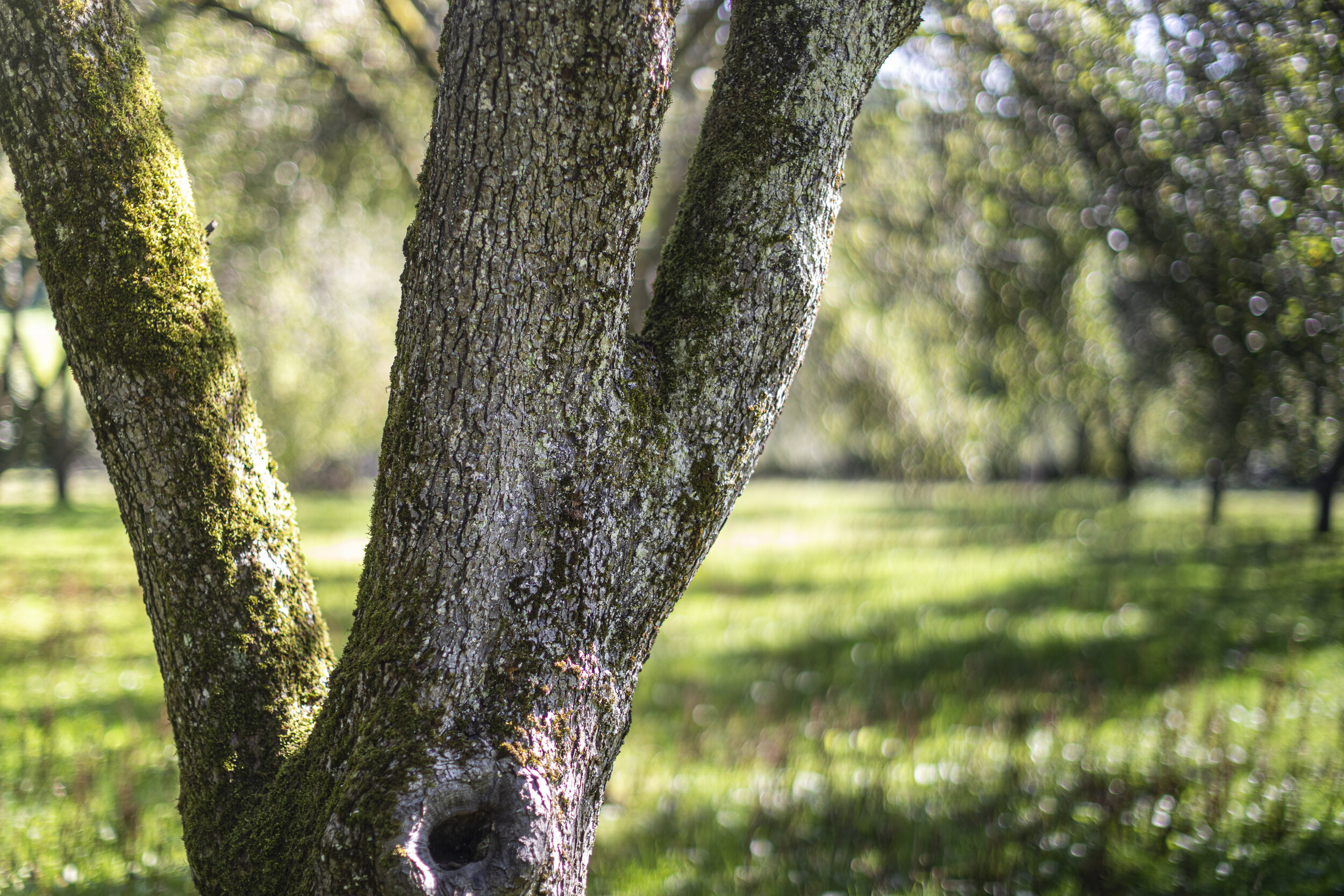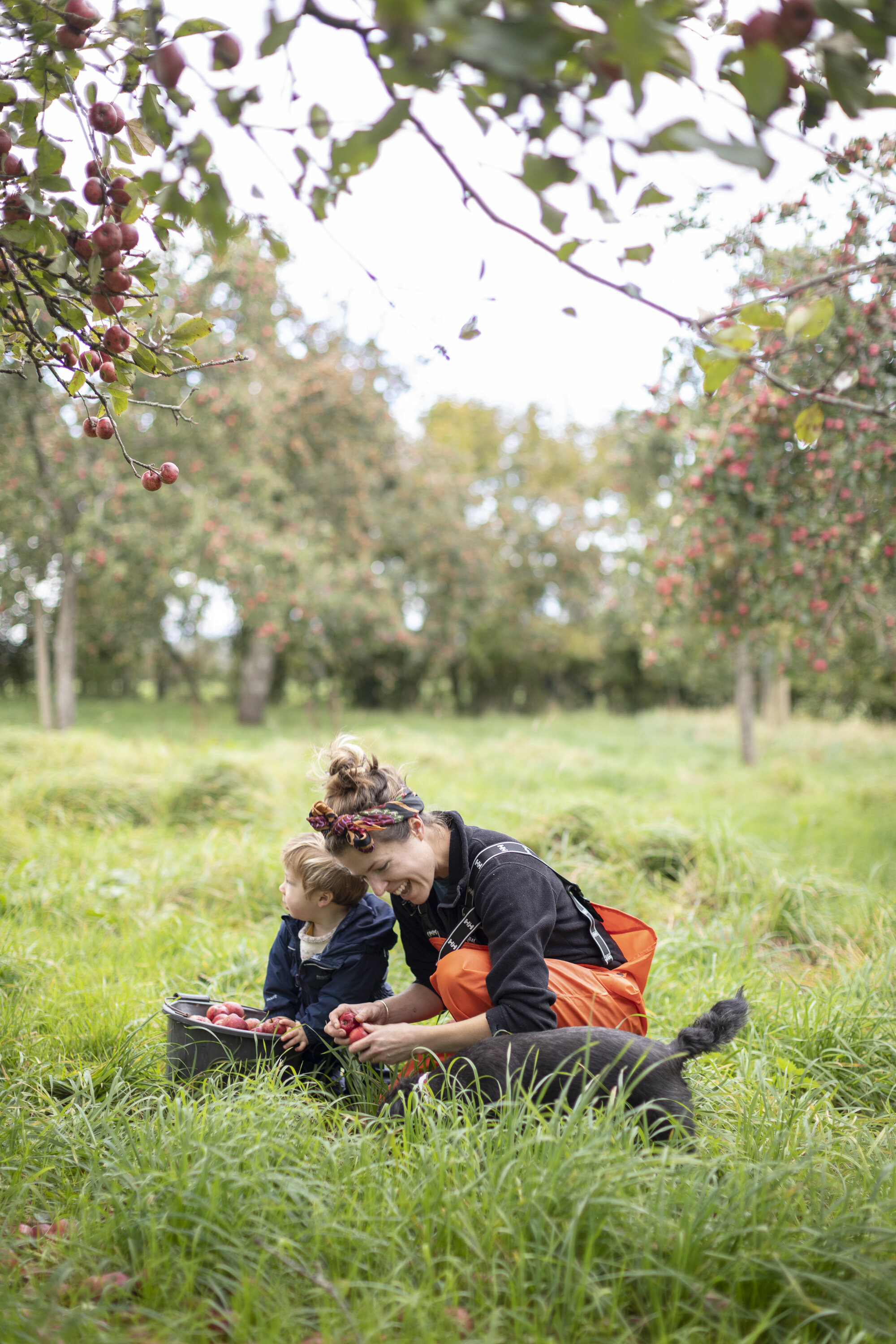There Only Apples, Red and Green — Wilding Cider in Somerset, England
Do you have to be patient to make cider? Beccy Leach, one-half of Somerset’s Wilding Cider, thinks so. She conditions her bottles for 18 months before releasing them, a process she compares to pregnancy. The waiting. The wondering. “You have to be patient because there's nothing really you can do about it,” she tells me.
Photography by Bill Bradshaw
As she says this, her 11 month old son Alfred clambers over her lap. Her husband, Sam—the other half of Wilding—looks on. “I don't think either of us are naturally that patient,” he muses, “but you sort of have to be.” The couple both have that look of new parents: tired but happy but stressed but dealing with the chaos as calmly as they can. Alf buffets his mother, sticks his pudgy hand on her chin, interrupts often.
***
Some, but not all, cider is made year-round in bulk from watered-down apple concentrate. Much like a mass-produced lager, it will taste the same from one year to the next. Wilding Cider has more in common with wine. It's made from a particular year's harvest using nothing but juice from the fruit and naturally fermented by the yeasts indigenous to the skins. Each year—each vintage—will bring its own subtle variations.
My first encounter, a 2017 bottle of a still, dry cider called Run Deep had me immediately hooked. Despite its lack of carbonation, it tingled on the tongue, its sweetness kept in check by a touch of tannic dryness. Soon after, a 2018 bottle of the funkily named Reasons to be Cheerful played the starring role in a simple supper alongside a few handfuls of sourdough and an oozing Chaource. Its complexity and almost tropical fruitiness deftly balanced by tannins and acidity was a perfect match for the cheese.
Low-intervention cider like this is a bit like time travel. It’s a series of perfect moments captured in a bottle. It’s the apples, harvested at their ripest, then scratted (the process of turning apples into pulp so juice can be more easily extracted) and pressed at their juiciest; the capricious wild fermentation left to run its course; the cider racked just as the yeast has done its work, then laid down in bottles to mature until the peak of perfect readiness arrives.
"These products reach their potential once they've had a little bit of time to chill out," Cider writer Gabe Cook (aka The Ciderologist) says, adding that this long maturation is necessary for the cider’s tannins to soften. "The hallmark of [Wilding] ciders is that they are elegant and classy."
Cider advocate Martyn Goodwin-Sharman—who also works at Bristol pub, The Good Measure—echos Gabe’s thoughts. He characterises Wilding ciders as “Somerset in a suit”. When he first tasted their cider, at Bristol's annual Cider Salon event in 2019, he was impressed by the technique and character they displayed.
"Everything about it clicked with the more progressive Herefordshire styles I knew and loved, but showcasing Somerset’s specific cider apple character,” Martyn says. “That big grippy finish you’d find in [Tom] Oliver’s cider was there but mellow. The aroma was bold and boasting character, but backed by that traditional Somerset hay and stewed apples."
Lauded cidermaker Tom Oliver’s influence among the UK’s cider producers means he often appears as a character in other people’s stories. With Wilding he plays more than a bit part—he’s Beccy's first cousin, once removed on her mother's side. "We have that family connection so it's easy to drop him a late-night message," Beccy says. He's taught us so much."
Tom tried at first to dissuade Sam and Beccy from turning their cidermaking hobby into a business—despite also being quoted as saying that cider “needs more producers.” He worried there wouldn't be enough money in it for them. “I didn't want to sell them a pup,” Tom says. “I was probably even harder on them than I would have been on people normally.”
Things began to change in 2016, as Felix Nash's Fine Cider Company opened up routes to London's restaurants and bottle shops. “One of the keys to progressing was to have a London merchant who got cider, and was making cider a thing,” Tom says. With his own and other makers' fortunes improving, Tom gave Sam and Beccy the leg-up they needed to get started in earnest.
***
The through-lines to cider's past exist in England's orchards, but these ties have been waning for decades. Sam and Beccy live on a farm in Chew Magna, which lies in the Chew Valley, 10 miles south of Bristol on the edge of the Mendip Hills. This land was once covered in traditional orchards, now most are gone forever. Sam and Beccy have historical maps that show the extent of the decline. “It's shocking how many have been lost,” says Sam. "There were 25 orchards in Chew Magna in 1860, and now ours is the only one left."
He tells me some of the larger cidermakers—Bulmers, Thatchers and the like—have started buying imported concentrate, having already built up a large store made from British fruit. And as a result they’ve ended contracts with lots of orchards. Some are large commercial orchards growing mainly Michelin and Dabinett apple varieties, which are plentiful elsewhere. But many are older, traditional orchards where less common varieties grow. Some of these are likely to be unique and irreplaceable.
““There were 25 orchards in Chew Magna in 1860, and now ours is the only one left.””
"What I'd like to see is cidermakers and drinkers talking more about orchards, and that being a thing that's exciting, rather than the strain of yeast or using a quince or using barrels,” Sam says. “All those things have their place, but they're not the most interesting thing about cider."
Sam wants people to get excited by cider's terroir, the orchard's soil, the apple varieties growing there, and the age of the trees. “Some wines make a virtue of their grapes growing on 100-year-old vines,” he tells me. "There are loads of orchards with 100-year-old trees, but if we don't look after them we won't have many of them left in 10 years’ time."
Wilding Orchard, from which Sam and Beccy took the name for their cider, covers about five-and-a-half acres. Sam and Beccy have recently planted almost an acre with new trees, which will take 25 years to become fully productive. The couple will be lucky to get 20 or 30 harvests from their new trees. It will be 50 or 100 years before the crops reach their peak. They hope another cidermaker will be there to reap the benefit.
***
Despite still operating on a small scale, Sam and Beccy are making a name for themselves in high places. Felix Nash’s Fine Cider Company supplies Wilding Cider to high-end restaurants such as the Michelin-starred Lyle’s in London, and Osip, a farm-to-table restaurant in Bruton, Somerset.
With cider such as Wilding’s not always getting the recognition it deserves, restaurants such as these can act as gatekeepers of quality. “When cider is put alongside food by some of the best chefs in the country, and alongside the most exciting wines, the associative value of that is a really powerful way for people to realise that cider can be appreciated in that way,” Felix says.
Sam and Beccy are still scaling Wilding Cider up towards full production, and until they do things are tight. The couple must take on other work to make ends meet, such as growing vegetables for the Bristol restaurant trade. (They used to own one themselves called Birch. It was fabulously popular and, says Gabe Cook, “easily the best cider-stocked restaurant in Bristol.” In 2018 the couple sold it to concentrate on making cider, and to allow more time for family life.) Sam also takes on freelance cooking work—or did before the Covid-19 pandemic hit.
"We've had this difficulty of having to do the work and buy the bottles for one volume of cider while selling a much smaller volume," Sam says. Wilding's production has increased from 800 75-centilitre bottles in 2017 to 10,000 in 2019; the couple expect to make a similar amount this year. But sales have lagged behind as the bottles take time to condition. At the same time, they have reinvested much of their income buying bottles and labels. “They'll sit there with cider in for maybe two years. It's quite terrifying,” he adds.
When we spoke in late August, there were four to six weeks left before the 2020 harvest began. "It feels special at the moment, in our home orchard particularly," Beccy tells me. "We've worked hard doing top-working on a lot of the trees. Seeing the growth on those is quite remarkable. All our grafts have taken well."
This work aims to bring balance to their orchard by converting Bulmers Norman—"Not a very interesting variety," says Sam. "In fact it's borderline unpleasant."—into some sort of sharps (one of the four broad categories of cider apple, each of which brings a certain character to the cider, in this case acidic.) With this Sam and Beccy are looking to the ciders they will be able to make not now, not next year, but in 10 years' time and further on. To hear Sam’s enthusiasm you would think it was next week.
Sam and Beccy have their eyes fixed on the future. Changes to the orchard are not their only long-term plan. They are also developing a side-line in cider brandy that may take anywhere between five and 10 years to bear fruit. (This already shows much promise. Tom Oliver says their unaged eau-de-vie is the best he’s ever tasted.)
"I'm excited about other people making ciders," Beccy says when I ask what else she’s excited about. "We've had a few people contact us who are interested in making, and that's great. The more interesting makers you get the better because they raise everybody else's game up. It saves the orchards as well, because if there's demand for the apples then the orchards are going to continue."
"There are restaurants and bars and pubs and people at home starting to get excited about [cider] in a way that definitely wasn't the case five, 10 years ago,” Sam adds. “That's exciting. It makes me feel like there's a future."



